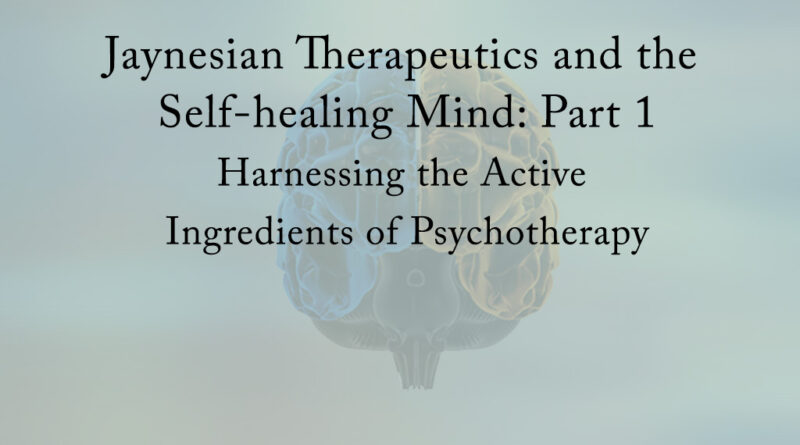

It is an interesting fact that the success rates for different psychotherapies are about the same. This is why researchers have searched for “common factors” that facilitate the healing process. The goal, then, should be to discover the common “active ingredients” of all therapies, e.g., the personality of the therapist, the “therapeutic alliance.” Could consciousness itself constitute a common factor that can be cultivated in order to repair troubled minds? Could consciousness underlie the effectiveness of the self-healing mind?
Let’s start with what consciousness actually means by relying on Julian Jaynes’s definition: A type of meta-cognition that is experienced as subjective introspectable self-awareness. He claimed that consciousness — or to be more precise, the “features of conscious interiority” (FOCI) — is not biologically innate but was culturally learned by about 1000 BCE. FOCI are instances of adaptive reframing, abstracting, metaphorizing, and transcending our circumstances: (1) mental space (introspectable stage for manipulating mental images); (2) introception (employing semi-hallucinatory, quasi-perceptions to “see” different perspectives); (3) self observing and self observed (increasing role/perspective-taking); (4) self-narratization (intensifying retrospection/prospection capabilities); (5) excerption (editing mental contents for higher-order conceptualization); (6) consilience (fitting conceptions together more effectively to bolster abstraction); (7) concentration (peripheralizing unrelated mental material); (8) suppression (deleting distracting and distressing thoughts); (9) self-authorization (self-legitimizing one’s decisions and volitional behavior); (10) self-autonomy (bolstering self-direction and self-confidence); (11) self-individuation (highlighting personal strengths); (12) self-reflexivity (cultivating insight, self-objectivity, and self-corrective abilities). …
|
